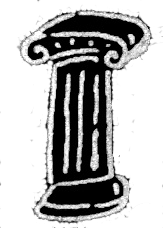Covid and Dragons
Fear has many eyes ....and, for every saying about fear there is its opposite. For example: "fear arises from ignorance." But we know that from the cavalcade of anti-vaxers, armed with disinformative conspiracy theories, they have no fear. Belief in the nonexistence of Covid-19, or belief that it is no more dangerous than the common cold, creates a complacency, a fearlessness, in the face of severe illness and death. They all deserve to ride on the old Alfred E. Newman slogan, "What, me worry?"In older times plagues called forth dragons. The idea that a dragon comandeered a most valuable treasure or imprisoned a most beautiful princess or guarded a most sacred object offered an object lesson on human wish fulfillment. That a person, armed with little more than righteous confidence, could triumph over such an implacable and powerful monster gave hope that mere wishing could vanquish the unvanquishable. Our 45th President seems to personify that person. His flaunting of all moral standards, his supreme disregard for historical or juridical or constitutional truths and laws, has positioned him in the forefront of collective, wishful, magical thinking. Even Covid could not stop him or give him pause or deter his base of avid, rabidly wishful followers.The anti-vaxers and anti-maskers have constructed a monster out of science, medical evidence and common sense as a nonsensical rapture, as if a pseudo-science, crafted out of unreal and de-bunked, fraudulent data, will save them. Will save them from the fantastical dragon they have contrived.
"Science persuades by demonstrating natural truths through verifying experiments."
The willing immersion into and even proselytizing for an anti-science health system is not new. Ancient health practices, such as those by Hippocrates, were based on actual healing experiences and continued through the period of the Roman empire, not to fail to mention that indigenous peoples elsewhere experiment with plants and plant extracts. All these relied on the observed success (or failure) of natural experiments.The early Christian church asserted that divine knowledge (as promulgated by church leaders relying on divine instruction) was the only acceptable source for medical truths. Studying nature was ruled a sin, a heretical repudiation of God. Science was precluded.Mesmerism, a treatment for many ailments, enjoyed great popularity in the eighteenth and 19th centuries. Its practice was founded on the discovery of magnetic physics, which became mutated by fantastical belief into a kind of spiritual magnetism applied not to iron but to humans.Hypnotism derived from these routes, is now formulated as an interpersonal exchange based on psychological dominance and submission with directives implanted by suggestion.Christian Science, still an active anti-science belief system, held considerable sway in its first decades near the beginning of the twentieth century. It offers hope in dire medical circumstances but may interfere with effective, evidence-based treatment.The politics of persuasion, which all false belief systems probably emerge from, is a phenomenon deeply embedded in the evolution of human psychology. Science persuades by demonstrating natural truths through verifying experiments. We are persuaded when results appear real, tangible and capable of repetition by others.But persuasion to a false belief, especially one that challenges an accepted norm, relies on the power of a contrary alternative. Repudiating a social norm can feel heroic, revolutionary, and exquisitely triumphant. Herein lies the power of exceptionalism, of daring to stand outside and apart, to thumb one's nose even while inhaling through it a potentially crippling and even fatal virus.Do we let the dragon roam free? And rely on heaven to help us?"Lets go Brandon!"

